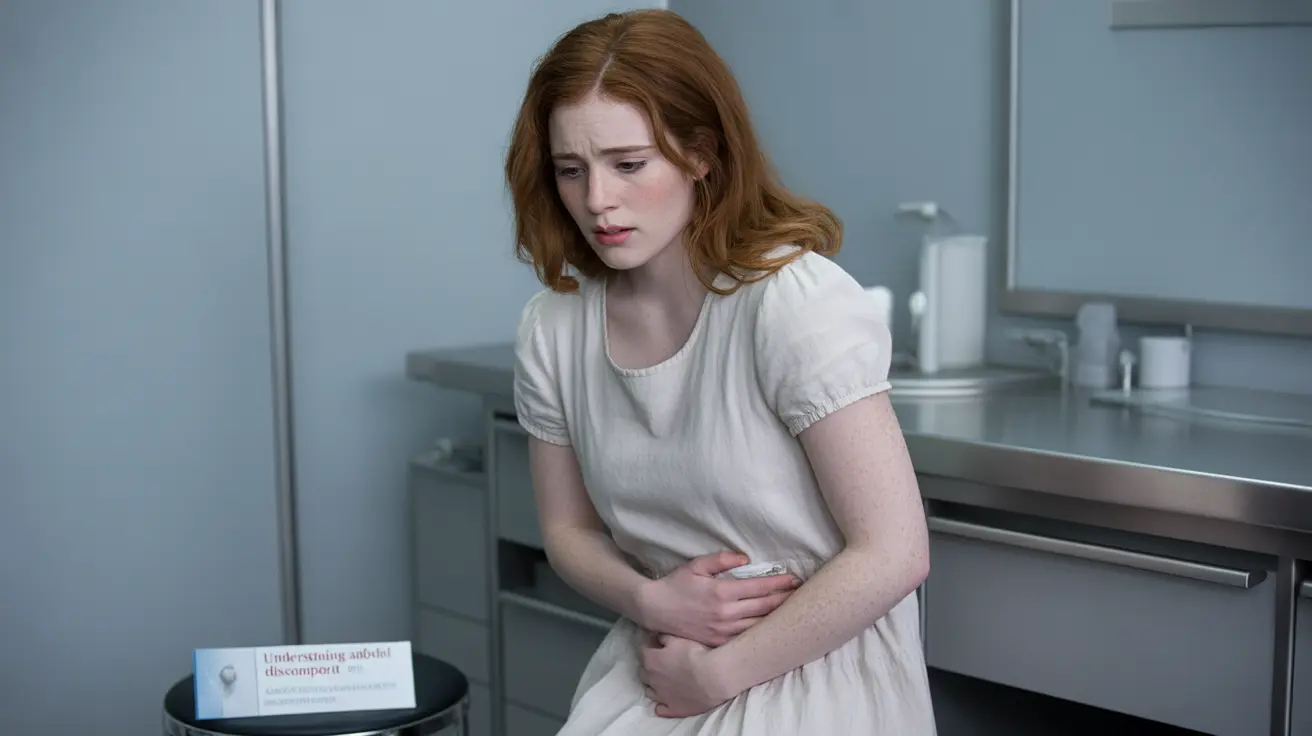Experiencing cramps when your period is late can be confusing and concerning. This common situation leads many people to wonder about the underlying cause, particularly whether it might signal pregnancy or indicate a health issue. Understanding the various reasons behind these symptoms can help you better assess your situation and determine when to seek medical advice.
While menstrual cycles typically follow a predictable pattern, various factors can influence their timing and associated symptoms. Let's explore the potential causes of cramping when your period is delayed and learn when these symptoms warrant medical attention.
Common Causes of Cramping with a Late Period
Several factors can cause cramping when your period is delayed. Understanding these possibilities can help you better evaluate your situation:
Pregnancy
Early pregnancy is one of the most common reasons for experiencing cramps with a delayed period. Implantation cramping, which occurs when a fertilized egg attaches to the uterine wall, can feel similar to menstrual cramps but is typically milder. These cramps often appear 6-12 days after conception, coinciding with when your period would typically start.
Stress and Lifestyle Factors
High stress levels, significant changes in routine, or intensive exercise can affect your menstrual cycle and cause both delays and cramping. These factors can disrupt your body's hormonal balance, leading to irregular periods and associated discomfort.
Medical Conditions
Various health conditions can cause both delayed periods and cramping, including:
- Polycystic ovary syndrome (PCOS)
- Endometriosis
- Ovarian cysts
- Thyroid disorders
- Uterine fibroids
Understanding Different Types of Cramps
Menstrual vs. Early Pregnancy Cramps
Distinguishing between menstrual and early pregnancy cramps can be challenging, but there are some key differences:
- Menstrual cramps tend to be more intense and concentrated in the lower abdomen
- Pregnancy cramps are usually milder and may be accompanied by light spotting
- Pregnancy cramps typically don't last as long as menstrual cramps
- The location of pregnancy cramps may be more specific to one side
Warning Signs
Some cramping symptoms require immediate medical attention, especially when accompanied by:
- Severe pain that interferes with daily activities
- Heavy bleeding
- Fever
- Unusual discharge
- Severe headaches
- Dizziness or fainting
When to Take a Pregnancy Test
If your period is four or more days late and you're experiencing cramping, taking a pregnancy test is a reasonable next step, especially if you've had unprotected sexual intercourse. For most accurate results, wait until at least the first day of your missed period before testing.
Frequently Asked Questions
What does it mean if my period is 4 days late but I still have mild cramps?
Mild cramps with a late period could indicate early pregnancy, stress-related hormonal changes, or underlying medical conditions. The combination of these symptoms isn't necessarily cause for concern but warrants monitoring and possibly a pregnancy test.
Could cramping with a late period be an early sign of pregnancy?
Yes, cramping with a late period can be an early pregnancy sign, particularly if the cramps are mild and accompanied by other pregnancy symptoms like breast tenderness or nausea. These cramps often result from implantation or early uterine changes.
How can I tell the difference between period cramps and early pregnancy cramps?
Early pregnancy cramps tend to be milder, more intermittent, and may be accompanied by light spotting. Period cramps are typically more intense, longer-lasting, and accompanied by other premenstrual symptoms.
What other conditions can cause cramps when my period is late?
Several conditions can cause cramps with a late period, including PCOS, endometriosis, ovarian cysts, thyroid disorders, and stress. Lifestyle factors like significant changes in weight, exercise routines, or stress levels can also contribute.
When should I see a doctor if my period is late and I have abdominal pain?
Seek medical attention if you experience severe pain, heavy bleeding, fever, unusual discharge, or if your period is more than two weeks late. Additionally, consult a healthcare provider if you have recurring irregular periods or chronic pelvic pain.




